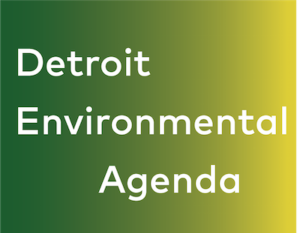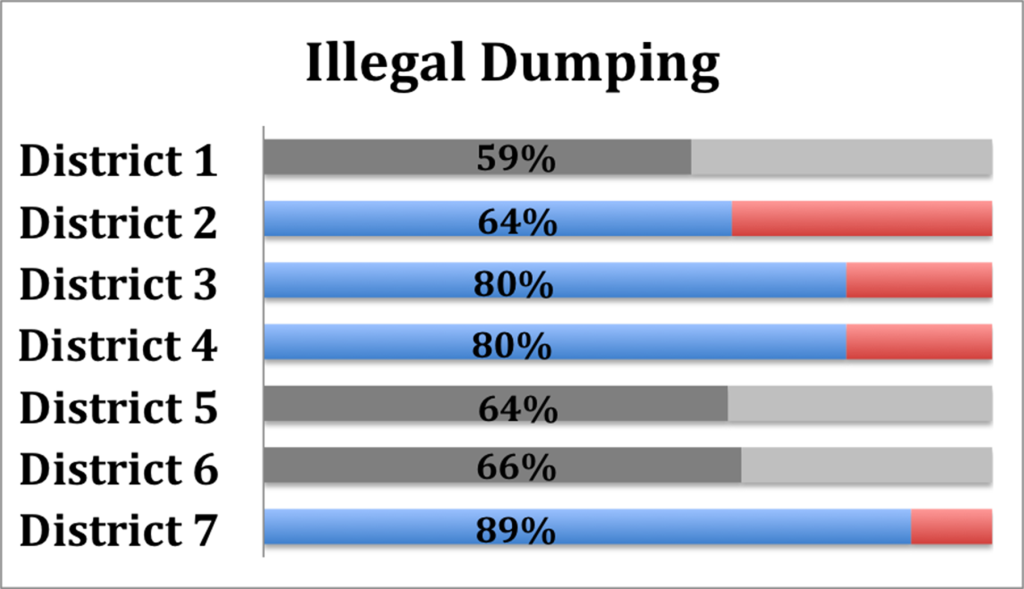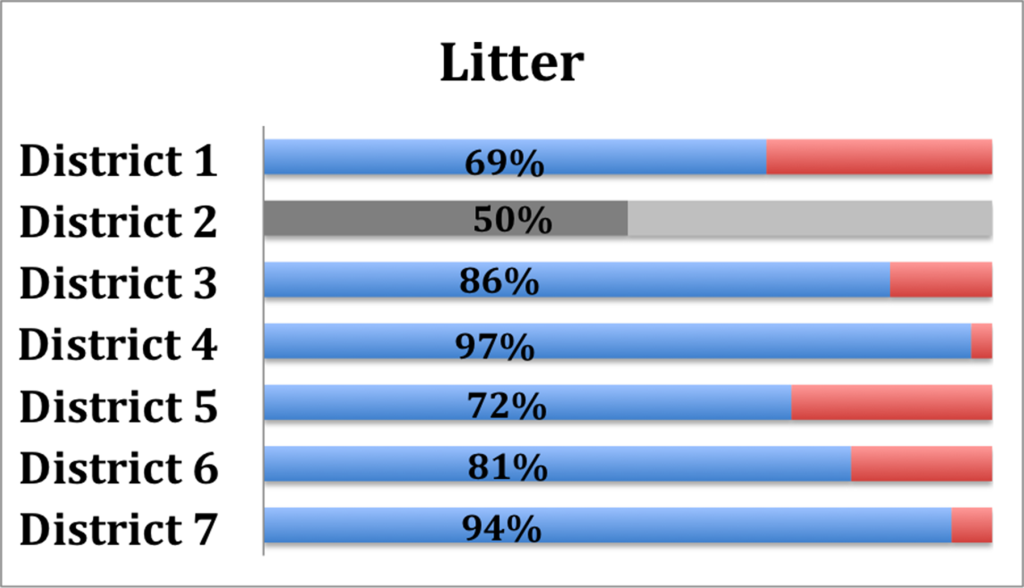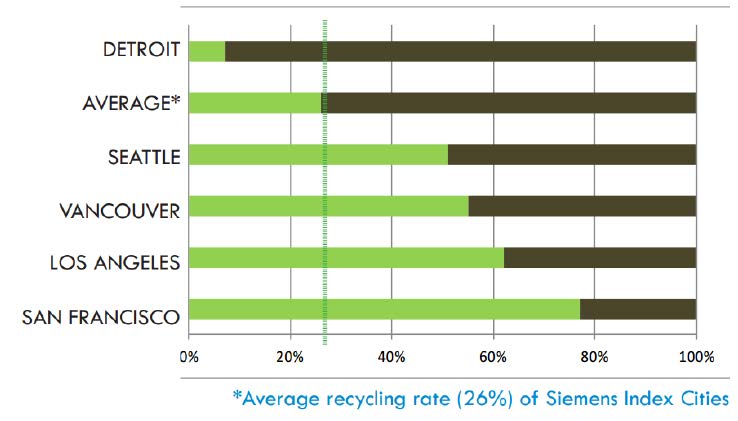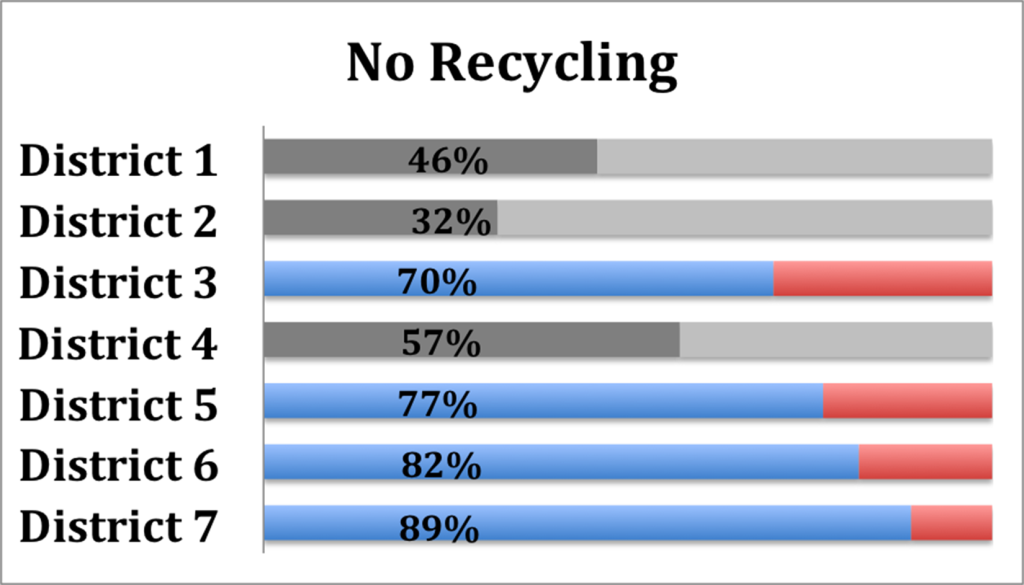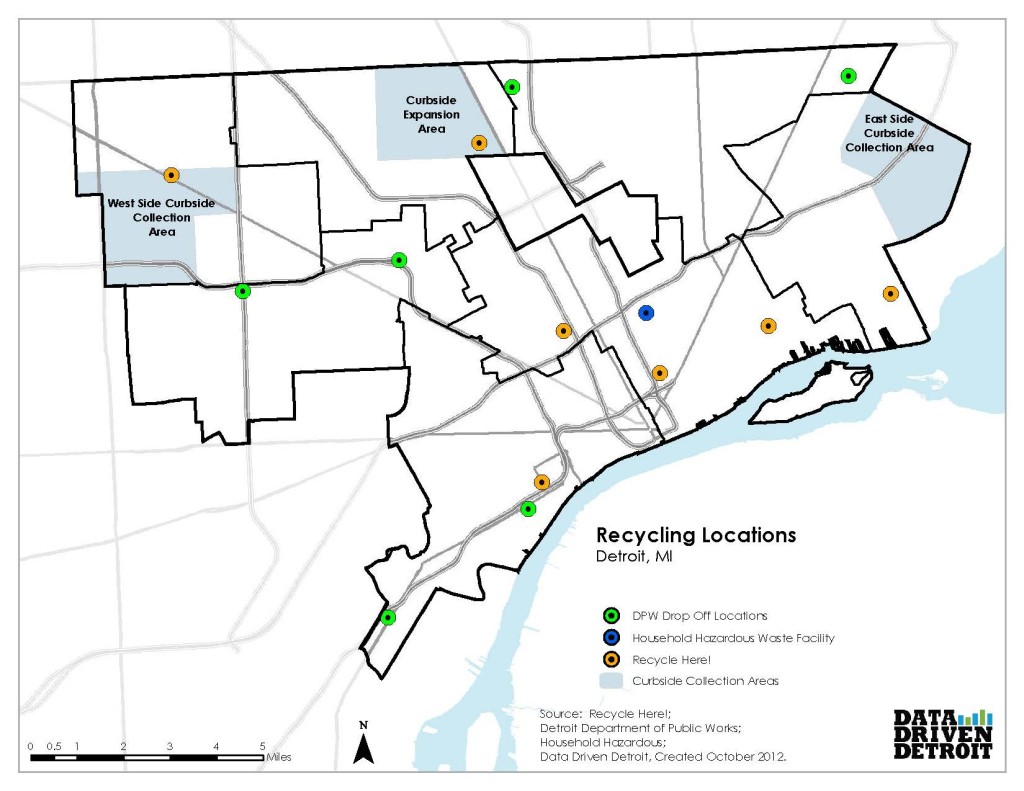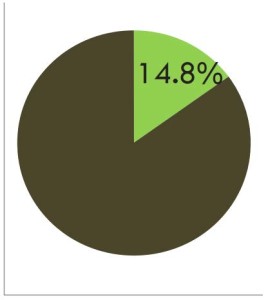Click here for the full Environment & Urban Cleanliness section
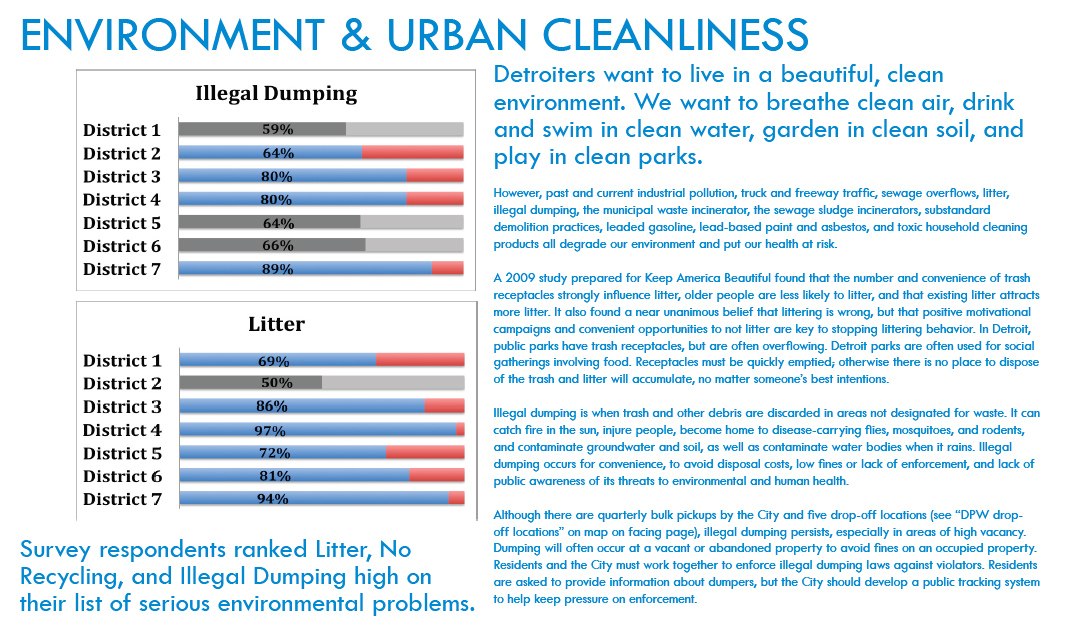
SEE FULL TEXT BELOW:
ENVIRONMENT & URBAN CLEANLINESS
Survey respondents ranked Litter, No Recycling, and Illegal Dumping high on their list of serious environmental problems.
Detroiters want to live in a beautiful, clean environment. We want to breathe clean air, drink and swim in clean water, garden in clean soil, and play in clean parks.
However, past and current industrial pollution, truck and freeway traffic, sewage overflows, litter, illegal dumping, the municipal waste incinerator, the sewage sludge incinerators, substandard demolition practices, leaded gasoline, lead-based paint and asbestos, and toxic household cleaning products all degrade our environment and put our health at risk.
A 2009 study prepared for Keep America Beautiful found that the number and convenience of trash receptacles strongly influence litter, older people are less likely to litter, and that existing litter attracts more litter. It also found a near unanimous belief that littering is wrong, but that positive motivational campaigns and convenient opportunities to not litter are key to stopping littering behavior. In Detroit, public parks have trash receptacles, but are often overflowing. Detroit parks are often used for social gatherings involving food. Receptacles must be quickly emptied; otherwise there is no place to dispose of the trash and litter will accumulate, no matter someone’s best intentions.
Illegal dumping is when trash and other debris are discarded in areas not designated for waste. It can catch fire in the sun, injure people, become home to disease-carrying flies, mosquitoes, and rodents, and contaminate groundwater and soil, as well as contaminate water bodies when it rains. Illegal dumping occurs for convenience, to avoid disposal costs, low fines or lack of enforcement, and lack of public awareness of its threats to environmental and human health.
Although there are quarterly bulk pickups by the City and five drop-off locations (see “DPW drop-off locations” on map on facing page), illegal dumping persists, especially in areas of high vacancy. Dumping will often occur at a vacant or abandoned property to avoid fines on an occupied property. Residents and the City must work together to enforce illegal dumping laws against violators. Residents are asked to provide information about dumpers, but the City should develop a public tracking system to help keep pressure on enforcement.
Detroit ranked last out of 27 North American cities in the Siemens Sustainability Index (2011) for waste. After growing recycling options and piloting curbside recycling, Detroit’s 2012 recycling rate (7%) is a great increase from its 2006 recycling rate of 0.1%; however, it is still well below the average (26%). San Francisco, which ranked highest in the 2011 index, now recycles over 80% of its waste.
14.8% of Detroit Households Have Access to Curbside Recycling
Source: Detroit Department of Public Work, Zero Waste Detroit
